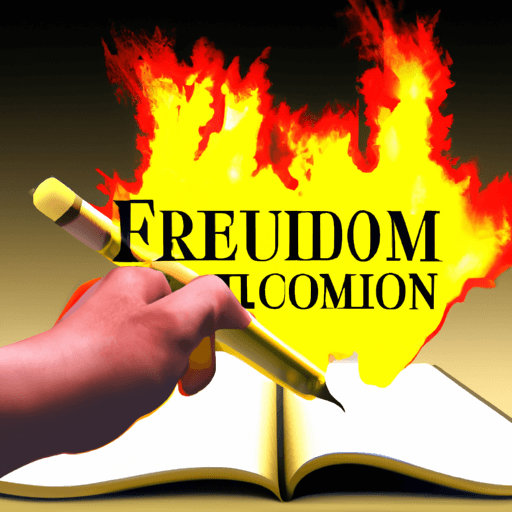Censorship in Literature: A Comprehensive Exploration
What is Censorship in Literature
Censorship in literature refers to the suppression or prohibition of parts or the totality of a particular book, publication, or any literary work that is considered obscene, politically unacceptable, or a threat to security. Historically, it has been used as a tool by various authorities, often political or religious, to control the spread of information and ideas. Today, this practice continues, albeit in more subtle forms.
Historical and Contemporary Examples of Censorship in Literature
One of the prominent historical examples of censorship is the Index Librorum Prohibitorum, a list of publications deemed heretical, anti-clerical or lascivious by the Catholic Church. In the contemporary era, a notorious case is the banning and burning of Salman Rushdie's The Satanic Verses in several countries on the grounds it was offensive to Islam.
Impact of Censorship on Freedom of Expression
Censorship can have a chilling effect on freedom of expression. By censoring books, authorities can manipulate public opinion and limit public discourse, thus indirectly influencing authors. This can lead to self-censorship, where authors limit their expression for fear of getting censored or persecuted. This could reduce the overall quality of literature; when voices are silenced, the richness and diversity of the literary world can be significantly hampered.
Censorship and Human Rights
Censorship in literature intersects with the fundamental human right of freedom of speech and expression. The United Nations recognizes freedom of expression as a human right under Article 19 of the Universal Declaration of Human Rights. Here, the question arises: is censorship ever justified? The answer may be complex and largely depends on the specific context, balancing considerations like national security, public order, morality, and the right to freedom of expression.
Censorship: A Beneficiary or Adversary to Literature?
From my viewpoint, while there may be limited instances where censorship could be deemed necessary, on balance, it is predominantly negative. Censorship, by its very nature, imposes a restriction on the free expression of ideas. It stifles creativity, deters artistic freedom, and paves the way for a narrow, edited understanding of reality. An authentic, unfettered literature epitomizes personal and societal freedom, serving as a cornerstone of a democratic society. Hence, unrestricted literature should be the norm rather than the exception.



















Comments
Leave a Comment